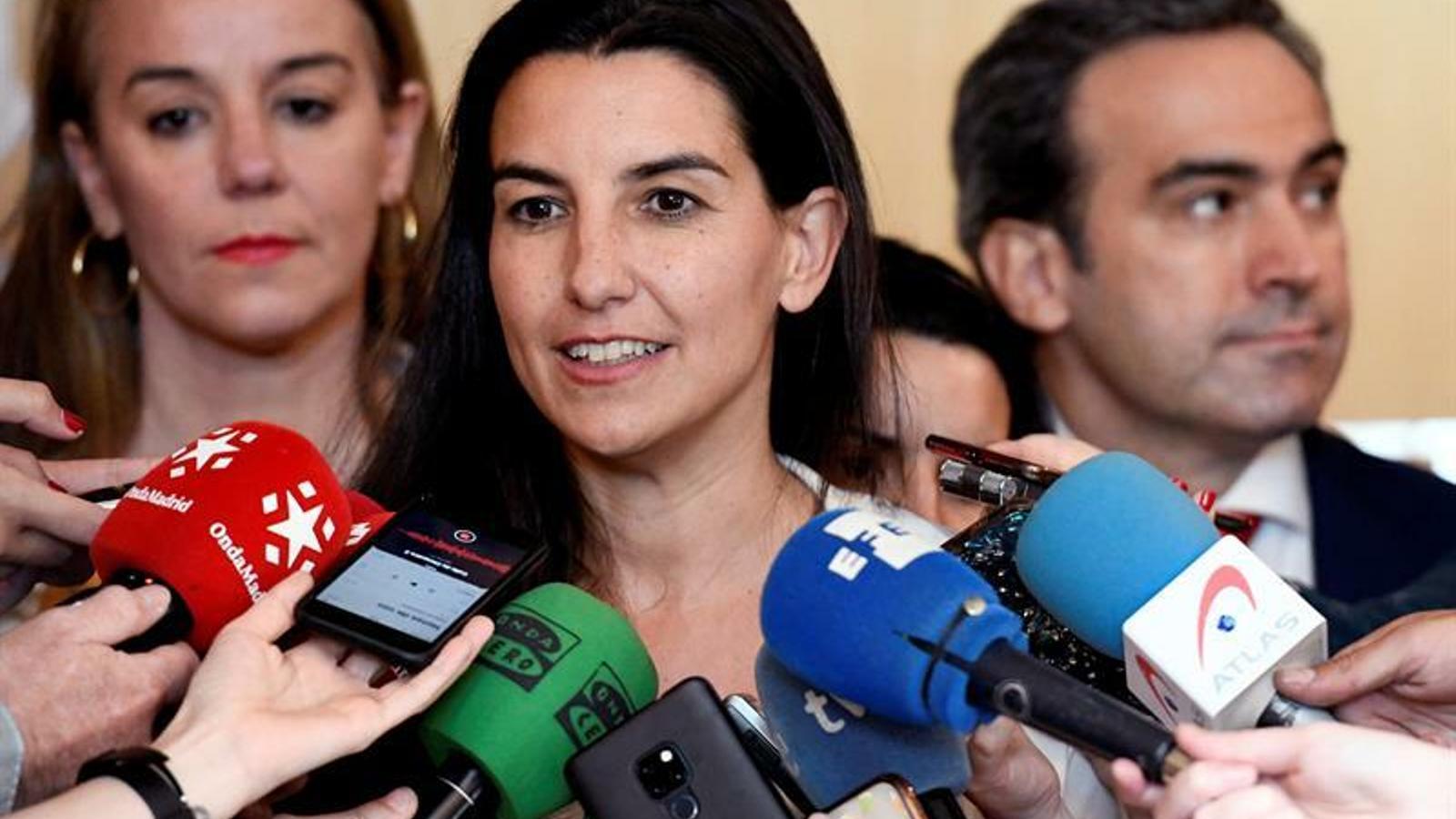Spain’s far right gets the PP’s thumbs-up
Talks between the PP and Vox to secure a majority in the parliament of the Madrid region are a democratic anomaly

BarcelonaThey are at it already. Pablo Casado’s PP has begun formal talks with kingmaker far-right party Vox with a view to securing a majority in Madrid’s regional parliament. The operation is being handled as if it were business as usual and, apparently, without a trace of ideological shame. In full daylight. Can anyone imagine Macron pursuing some sort of government agreement with Le Pen? Or Merkel’s party forming a coalition with the AfD in a Bundesland? Surely not. In Europe you fight the far right in court, as well as through agreements that bring together the democratic forces. Well, not here. In Spain such an anomaly is perfectly, blatantly possible. In Spain, a right-wing party that —like the PP— presumably hopes to occupy the social and political centre has no qualms about whitewashing the far right by welcoming it into one of the institutions of the Spanish capital. They have taken things one step further than in Andalusia, where Vox did not join the PP-Ciudadanos coalition government, but merely extended it their parliamentary support.
Even if these talks don’t bear fruit —we will see what Ciudadanos has to say—, the announcement of a hypothetical agreement between Vox and the PP cannot possibly be regarded as an ordinary move in the usual play of alliances aimed at securing sufficient support [for a regional government]. Not at all. On the contrary, it is a clear step backwards for Spain’s all-too-young democracy, which has unexpectedly welcomed a sort of 21st century Francoism redux. Vox represents a true regression. You only need to examine the tenets of their mental and political universe: they fuel the sort of Spanish nationalism that aims to bring back a unitarian, pre-constitutional motherland; their anti-immigration policies include blatantly racist elements; they seek to put a full stop to European integration and, last but not least, them combine a fiercely anti-feminist rhetoric with the defence of an antiquated notion of the traditional family. To sum up, Vox represents the same as Salvini, Le Pen, Wilders and Orbán, but with a Spanish flavour. It is a danger.
However, the Spanish right —which has thoughtlessly been trying to be the champion of Spain’s anti-Catalan sentiment for years— doesn’t seem to acknowledge any limits in its drift towards political extremism. PP leader Pablo Casado is turning his classically conservative party into the far right’s bedfellow, in a frivolous ceremony of ideological confusion. In their desperation to hold on to the diminishing areas of influence within their reach, the PP seem willing to give Vox leader Santiago Abascal the thumbs-up. It will be interesting to see how the PP will explain in Brussels how come they keep such bad companies …
Besides the PP, though, it is also a problem for Spain’s democracy: if the Partido Popular believe that they won’t pay a high price for their dealings with Vox, that means the alarm bells of public opinion and, particularly, of the press do not work in Spain. There is a more profound malaise in Spain’s political culture: the country is increasingly taking for granted —apparently with normal indifference— that a party which would destroy the 1978 democracy if it could will take office. In this case, to return to the past. Far back into the past.
